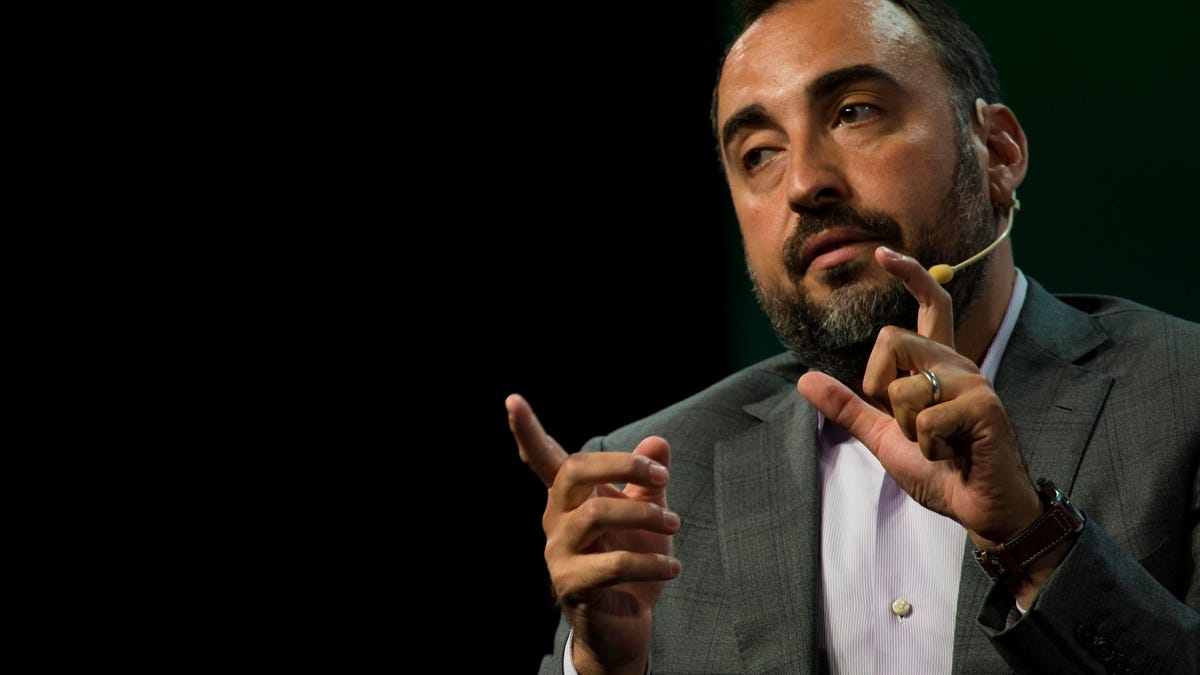Facebook ex-security chief says creating election chaos is 'totally doable'
Alex Stamos says the US will be in a "pretty bad place" if foreign interference continues in the next few elections.

Alex Stamos speaks at TechCrunch Disrupt in San Francisco on Thursday.
Alex Stamos paints a bleak picture for future elections.
Society's lenient response to foreign interference during the 2016 US presidential election has made it easy for attackers to do it again in upcoming elections, he says.
"If there's no foreign interference in the midterms, it's not because we did a good job," Stamos said at TechCrunch Disrupt in San Francisco on Thursday. "It's because our adversaries decided to give us a little forbearance, which is unfortunate."
Stamos added the security of campaigns and elections hasn't improved over the last two years, which could spell trouble for the 2018 midterm elections and beyond.
"In most cases, actually throwing an election one way or another is going to be very difficult for a foreign adversary," he said. "Throwing any election into chaos is totally doable right now."
Stamos was Facebook's chief security officer from 2015 until August, when he said he was leaving the social network for a research and teaching position at Stanford University. He played a key role in Facebook's response to interference by Russian trolls during the 2016 US presidential election. He also reportedly clashed with top executives like COO Sheryl Sandberg about how the company should handle the situation.
In March, Stamos reportedly wrote a memo to Facebook's staff urging them to take responsibility for the company's shortcomings, saying in part that the company's problems were linked to "tens of thousands of small decisions made over the last decade." The memo came on the heels of news about the Cambridge Analytica scandal, in which data from as many as 87 million Facebook users was improperly shared with the political consultancy.
"It's kind of a crappy job in 2018 to be a chief security officer," Stamos said Thursday. "It's a profession that's only existed for a couple of decades, and we don't have the mechanisms necessary to really understand what happens at these companies and to understand the risk and control the risk."
In August, Stamos wrote a post emphasizing that the US's leniency toward misinformation campaigns has left it unprepared to protect the 2018 midterm elections from hacks and propaganda techniques. But he added that it's still possible to improve security for the 2020 presidential election.
"After two or three elections like that, we'll be in a pretty bad place," he said Thursday.
Stamos noted that ad transparency is the most positive thing that's come out of issues with foreign interference.
He also touched on the delicate balance between users having free access to platforms like Facebook while allowing their data to be collected for targeted ads. It's a model he says will last for a long time.
"If these products are going to exist," he said, "you're always going to have these privacy tradeoffs."

